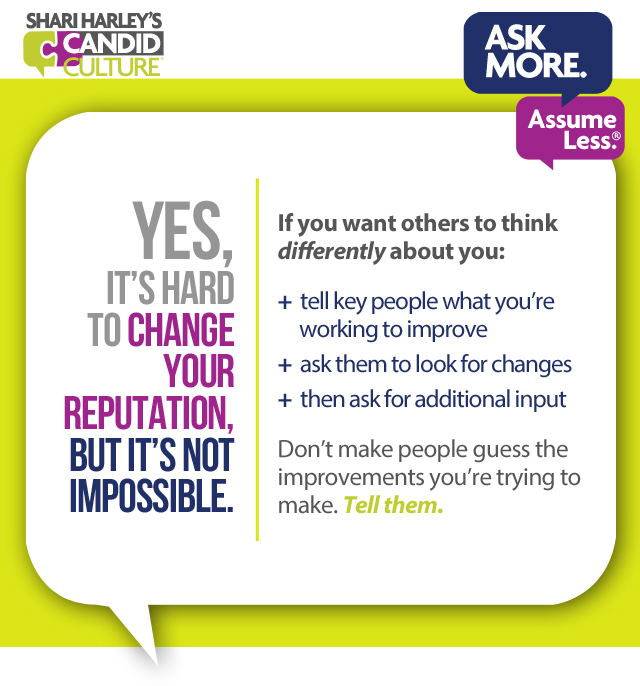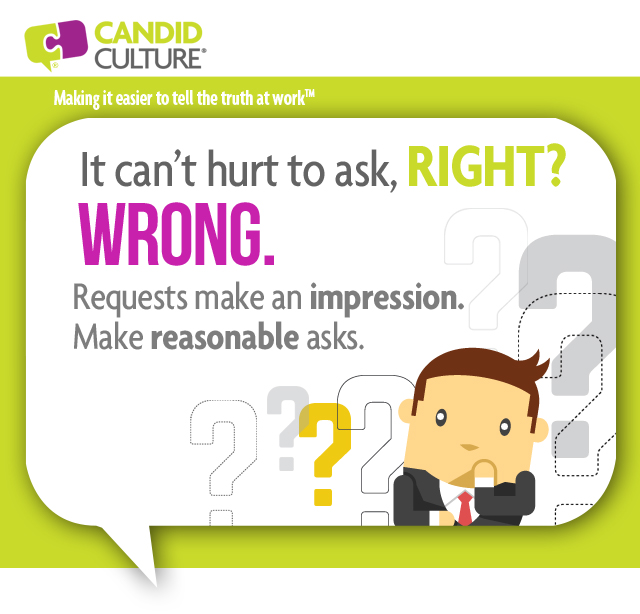How to Change Your Reputation at Work – Eight Steps
We know impressions are made quickly and are hard to change. But it’s not impossible to repair a damaged reputation. If you want to change how people see you, I’d suggest being very overt about the changes you’ve made. Don’t simply alter your behavior and wait for people to notice. They likely won’t.
Once people have formed an opinion about you, that’s often their opinion for as long as they know you. For example, if you have a tendency to be late, even if you periodically show up on time, your friends and coworkers will think of you as the person who is always late. If you work with someone who tends to miss deadlines, even if she periodically turns work in on time, you’ll think of her as someone who misses deadlines.
Once people make a decision about us, that’s often how they’ll see us for the duration our relationship. So if you want to repair your reputation, you’re going to have to do it overtly. Making changes and hoping people notice, won’t produce the desired result.

Here Are Eight Steps to Repair Your Reputation:
- Ask people who can impact your reputation and whose judgment you trust for feedback.
- Work hard to manage yourself and not get defensive. Respond to all feedback, no matter how hard it is to hear or how invalid it may feel with, “Thank you for telling me that. I’m going to think about what you said. I may come back to talk more later.”
- Once you’ve absorbed the feedback, decide what, if any, changes you will make.
- Change your behavior for a period of weeks.
- Return to the people who gave you feedback, tell them about the behavior changes you’ve made, and ask them to observe your behavior.
- Tell the people who gave you feedback that you’ll ask them for feedback again in a few weeks, and you want to know what they see.
- Return to the people who gave you feedback and ask what changes they have or haven’t noticed.
- Repeat steps 3 through 7 at least quarterly. Everyone periodically does things that can damage their reputation.
Overtly pointing out the behavior changes you’ve made, asking people who are important to you to pay attention, and give you additional feedback, is key to altering your reputation. Most people working to change their reputation don’t do this. They make behavior changes and hope others notice. If you want to alter your reputation and how others see you, you need to do so overtly. Tell people the changes you’ve made; don’t make them guess. Ask people to observe your behavior, and then ask for more feedback. And no matter how hard the feedback is to hear, don’t get defensive. Becoming defensive will ensure you don’t get feedback the next time you ask.





